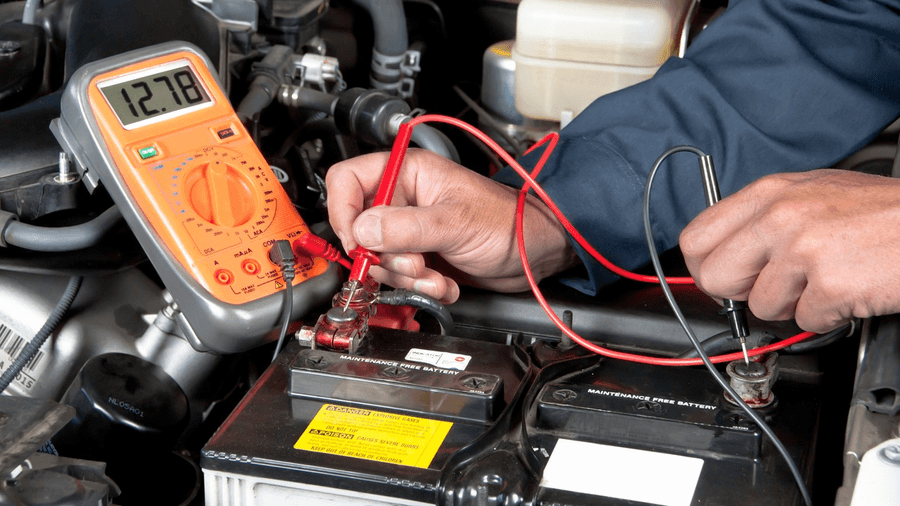The Check Engine Light is a catchall for a wide variety of potential issues with your vehicle that range from inconvenience to serious concerns that could lead to real damage to your engine. As you’ll see, many of the issues lead to reduced performance, reduced fuel efficiency or increased pollution. Below are ten of the more common issues tied to a Check Engine Light. For more information here’s where you can find everything else you need to know about Check Engine Lights.
- Loose or damaged gas cap: A loose or damaged gas cap can cause fuel vapors to escape from the fuel system, leading to reduced fuel efficiency and increased emissions. This can be as easy as tightening (or taking it off the roof and putting it on) the gas cap. Or, if it’s damaged you can find a replacement easily and at minimal cost at most auto supply stores.
- Oxygen sensor failure: The oxygen sensor measures the amount of oxygen in the exhaust, and provides information to the engine control module to help regulate the air/fuel mixture. If the oxygen sensor fails, the engine control module may not be able to correctly adjust the air/fuel mixture, leading to reduced fuel efficiency and increased emissions. This can trigger the Check Engine Light, and the sensor will need to be replaced to resolve the issue. Unlike a gas cap, this is something that most of us need to have a mechanic take care of.
- Catalyst efficiency below threshold: The catalytic converter is an emissions control device that helps to reduce the amount of harmful pollutants released into the atmosphere. If the catalytic converter is not functioning properly, the Check Engine Light may be triggered. The underlying cause of the failure will need to be diagnosed and repaired, and the catalytic converter may need to be replaced.
- Mass Airflow (MAF) sensor failure: The Mass Airflow (MAF) sensor measures the amount of air entering the engine, and provides information to the engine control module to help regulate the air/fuel mixture. If the MAF sensor fails, the engine control module may not be able to correctly adjust the air/fuel mixture, leading to reduced fuel efficiency and increased emissions. TThe sensor will need to be replaced to resolve the issue.
- Spark plug or ignition coil failure: Spark plugs are responsible for igniting the air/fuel mixture in the engine cylinders, and ignition coils help to provide the spark to the spark plugs. If a spark plug or ignition coil fails, it can result in an engine misfire, which can cause reduced engine performance, increased emissions, and damage to the catalytic converter. The failed component will need to be replaced to resolve the issue.
- Exhaust gas recirculation (EGR) valve failure: The Exhaust Gas Recirculation (EGR) valve helps to regulate the amount of emissions released into the atmosphere by redirecting a portion of the exhaust gases back into the engine. If the EGR valve fails, it can result in increased emissions and decreased engine performance. The EGR valve will need to be replaced to resolve the issue.
- Evaporative emission (EVAP) system failure: The Evaporative Emission (EVAP) system helps to prevent fuel vapors from escaping into the atmosphere by capturing them and routing them back into the engine to be burned. If the EVAP system fails, it can result in increased emissions. The underlying cause of the failure will need to be diagnosed and repaired, and components of the EVAP system may need to be replaced.
- Throttle position sensor (TPS) failure: The Throttle Position Sensor (TPS) measures the position of the throttle, and provides information to the engine control module to help regulate engine performance. If the TPS fails, the engine control module may not be able to correctly adjust the throttle, leading to reduced engine performance and decreased fuel efficiency. The TPS will need to be replaced to resolve the issue.
- Engine misfire: An engine misfire occurs when one or more cylinders in the engine are not firing correctly, resulting in a loss of power and increased emissions. Engine misfires can be caused by a variety of issues that will require a trained mechanic to diagnose and repair.
- Faulty thermostat: Just like a thermostat at home, the one in your car regulates the engine’s temperature. Thermostats can fail if the coolant is not changed when recommended, or if the vehicle is subjected to extreme conditions and temperatures. As you can imagine, controlling the temperature of your engine is important to keeping it from overheating and causing more serious problems.


